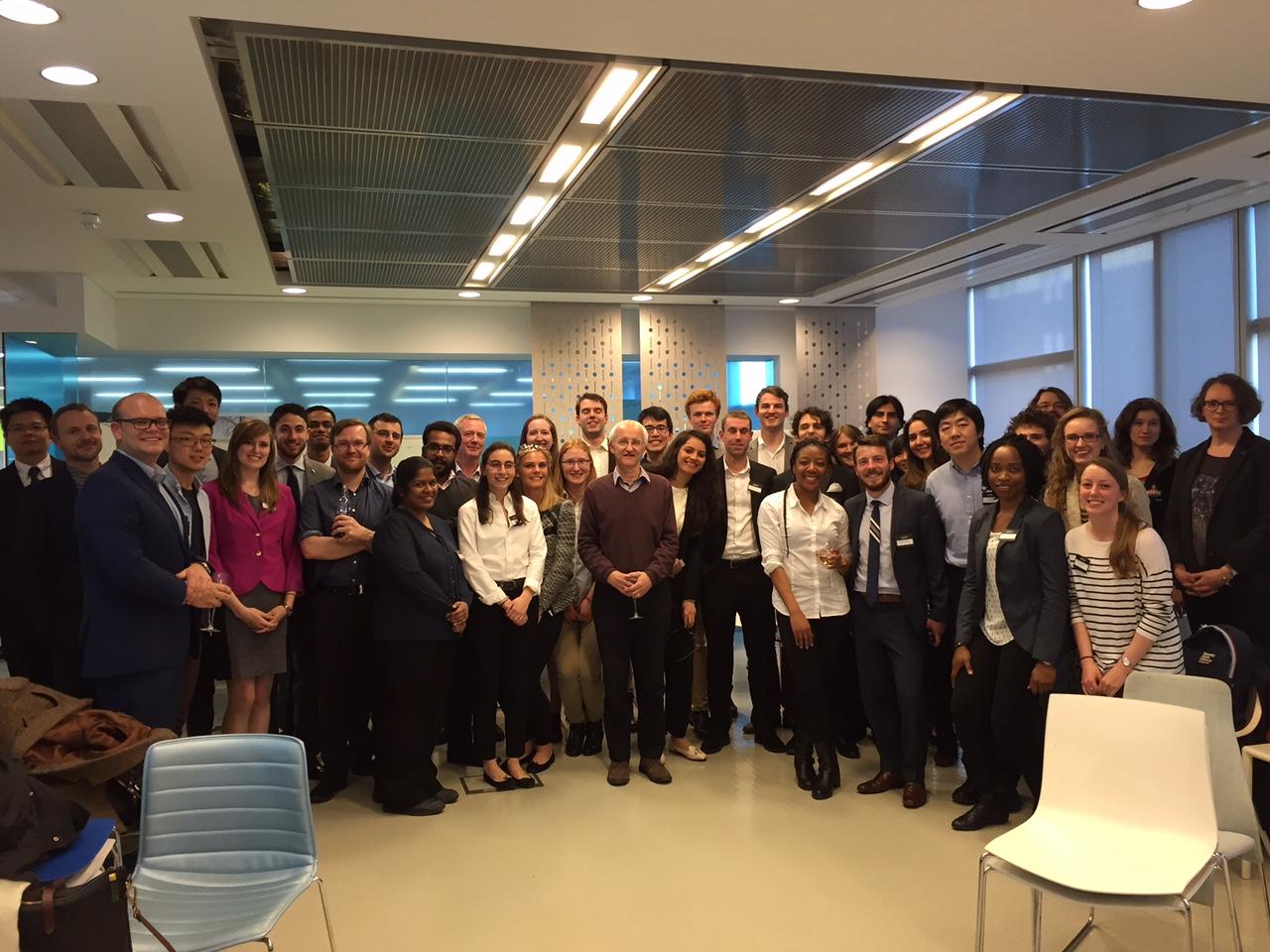
Submitted by Miss Sian Owen on Thu, 21/04/2016 - 15:06
Students from the MPhil in ESD presented to a high level industry panel
including senior directors from ARUP and Buro Happold, sharing their insights into carbon labelling for large infrastructure projects.
Students from the MPhil in ESD presented to a high level industry panel including senior directors from ARUP and Buro Happold, sharing their insights into carbon labelling for large infrastructure projects. The assignment was one element of the coursework for the Module on Sustainability of Large Infrastructure Projects led by Professor Peter Guthrie and which included guest lectures by senior engineers in the civil engineering industry.
Challenged with developing a scheme based on the potential of the project for mitigating or exacerbating carbon emissions, the students worked in groups to develop 4 different approaches to assessing infrastructure and supporting decision making.
Solutions covered energy infrastructure and various forms of transport project, and sought to actively improve decision making through the better provision and display of potential outcomes during project development, whilst encouraging the consideration of a wider range of more sustainable options.
The students were invited to pitch their solutions at ARUP headquarters inLondon and faced detailed questioning of their proposals by a panel of practising engineers with strong interests in sustainability.
The panel probed the students on a number of dimensions of their proposal from the communication of complex ideas and the inherent uncertainty associated with project assessment, to the time value of carbon and the power of different stakeholders in the commissioning process. The need for systems thinking, one of the key themes of the course was a central theme across the panels questions.
“We approached the challenge under the premise that it wouldn't be sensible to present an approach or system that Arup and BuroHappold already knew or are currently doing. At the end of the presentation and discussions, it was quite evident that they believe we are missing a common labelling system for large infrastructure projects, that resonates with the public and also directs the policy makers to take decisions.” Girish Shivakumar
This is the 3rd year in which the ESD student have presented to ARUP and the panel commented on the quality and diversity of the proposals and that the standard of presentation, an increasingly pivotal skill, was the highest yet. Tristram Carfrae, Deputy Chairman of Arup, commented "the depth of thought and research that was brought out through questioning was quite staggering."
The MPhil in ESD is very grateful to ARUP for hosting the event and setting the initial challenge, and to all the panellists from ARUP and Buro Happold for their insightful questioning and feedback.
